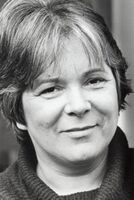Ria Kloppenborg
| PersonType | Category:Professors Category:Translators |
|---|---|
| FirstName / namefirst | Ria |
| LastName / namelast | Kloppenborg |
| MainNamePhon | Ria Kloppenborg |
| SortName | Kloppenborg, Ria |
| bio | Ria was born in a R.C. family in Utrecht briefly before the end of World War II. She entered Utrecht University in 1964 to read Law for two years, and Indian Languages and Cultures with the famous Prof. Jan Gonda for six years, to which she added courses in Religious Studies and Cultural Anthropology in Leiden University. In later life, she fondly remembered seminars in Leiden by Prof. Fokke Sierksma, the rebellious disciple of Van der Leeuw and first post-Christian scholar of religions in Dutch Faculties of Theology, on themes such as hair as symbol of sex and gender, and on messianic and apocalyptic movements. She earned her MA-degree in Indian Languages and Cultures in 1970 with a major in Buddhism, Sanskrit and Pali, and
minors in Comparative Religion, Ancient Javanese and Tibetan, and an MA-thesis on Suicide in Buddhism, in which she investigated the recent public self-immolations of Buddhist monks in Vietnam in protest against the war. She was appointed a junior lecturer in Buddhism in the Faculty of Theology of Utrecht University in 1970. Under Gonda’s guidance, she continued to work on ‘the concept of the Paccekabuddha in Pali canonical and commentarial literature’, on which she earned her PhD-degree in 1974. It dealt with the Buddhist ascetic who is ‘an enlightened one by himself’: he dies without having taught dhamma to others. It was her second publication, for in 1973 she had published already a critical edition of Catuşparişatsūtra, the Sūtra on the Foundation of the Buddhist Order. She loved this kind of philological work but was quite fastidious in it by demanding from herself and her students that translations not only reflect accurately the contents of a text but also its literary qualities. In this vein she published a translation into Dutch of Sāntideva’s Bodhicaryāvatāra (‘The Path of the Bodhisattva’) from the Sanskrit in 1980, and, with her students, the Bhagavadgita in 1997, also from the Sanskrit, and Theratherigatha, ‘The Verses of the Theri ’, (enlightened males and females), from the Pali in 1998 and 2000. Two more unfinished translation projects will be completed by one of her former students. Ria became a Senior Lecturer in the Utrecht Faculty of Theology in 1975, but also taught part time at Tilburg University from 1978 to 1981, and from 1981 to 1984 at the University of Groningen. She became a full professor in Living Religions and the Comparative Study of Religions in 1988 in the Utrecht Faculty, the first woman ever to hold a full professorship in a Dutch faculty of theology. In her inaugural address she discussed the Buddha as ‘the teacher of the world and the trainer of humans’. She herself was also an excellent teacher. She knew how to join the Buddhist past and its historical diversity with modern developments in Asia and Europe, e.g. by inviting a Buddhist monk or nun, or a Dutch lay Buddhist, into her classes as examples how Buddhism might permeate a person’s life also in modern Western societies. Though many of the Utrecht students were hardly receptive to critical scholarship on religions because of the orthodox Christian theology they espoused, a few were much inspired by it. For them, Ria was much more than merely an inspiring teacher. She invited some into her home for all night discussions, music and dance, and a breakfast in her garden in the early morning. For others she conducted, at their request, travel tours to Nepal, Sri Lanka and Thailand where she was conducting research. Ria supervised ten PhDs, four of which were awarded a cum laude. (Source Accessed Mar 19, 2021) |
| YearBirth | 1945/03/08 |
| YearDeath | 2003/10/04 |
| BornIn | Utrecht |
| StudentOf | Gonda, J. |
| phduniversity | Utrecht University |
| education | PhD in Buddhist Studies, Utrecht University, 1974
MA in Indian Languages and Cultures in 1970 with a major in Buddhism, Sanskrit and Pali, and
minors in Comparative Religion, Ancient Javanese and Tibetan |
| IsInGyatsa | No |
| Other wikis |
If the page does not yet exist on the remote wiki, you can paste the tag |

